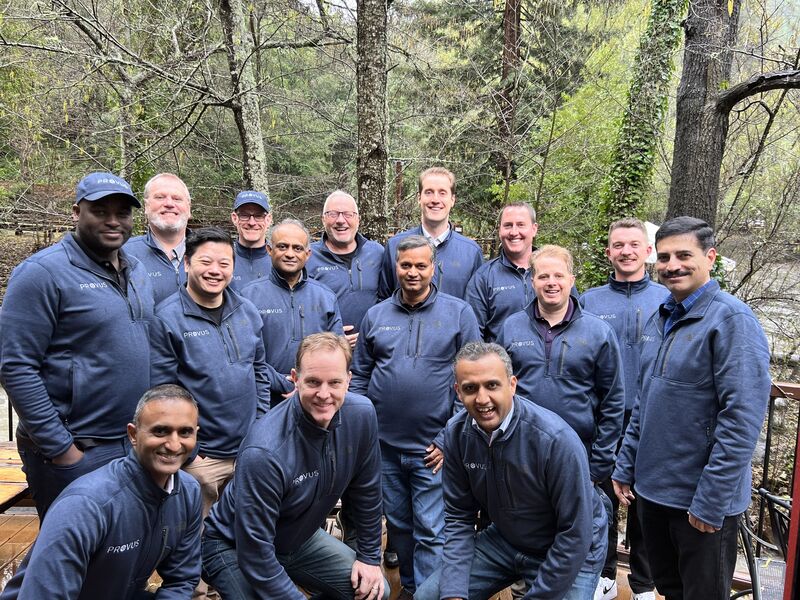After 30 years of scaling IT, product, and services operations for global software companies and founding two technology startups, I believe the single most important factor in a startup’s success is the domain expertise of its founders.
My story is a perfect example. Since my first job in the United States in 1997, every one of my professional experiences have touched what is called “quote-to-cash” (QTC) activities. (QTC is the end-to-end sales process from proposal to revenue recognition.) Within the QTC environment, I have focused on customer success and professional services in enterprise, and B2B markets.
Today, I am a co-founder and CEO of Provus, a company that offers QTC solutions for enterprise and professional-services companies. While many factors determine business outcomes, deep knowledge of the Quote-to-Cash domain has been a major contributor to the success of the company.
Based on my experience, I’d like to share four ways in which domain expertise contributes to – indeed, is essential for – the success of a startup:
- Credibility
- Context
- Confidence
- Criticality
Domain Expertise Lends Credibility
One challenge virtually every startup faces is establishing credibility. If you and your company aren’t yet a recognized name, prospective customers will justifiably be skeptical.
To make a positive first impression, you must give people a reason to give you their time and attention. No potential customer will listen to you if they don’t believe you have something valuable to say.
How best to establish this credibility? In my view, it is to demonstrate a deep knowledge of the customer’s environment:
- the industry and market(s) in which they operate
- the challenges and problems they face
- the core processes of their operating infrastructure
Most startup founders focus on solving a specific problem, so it is important to zero in on how that problem manifests itself in the customer’s environment. How severe is it? What’s been tried in the past to address it? What proposed solutions are currently available, and what are their advantages and drawbacks? Who are the competing solution providers? What relevant technology trends are happening?
These are questions that anyone can research online or through interviews with subject-matter experts. But if the founder already has an intimate knowledge of the field, they have a significant advantage in establishing credibility for themselves and their company. Why? Because they can speak the same language as the customer and find common ground by demonstrating a “been there/done that” empathy.
Domain Expertise Gives Insight into Customer Context
Tailoring a solution for each prospective customer requires intimate knowledge of their goals, challenges, and motivations. To obtain such knowledge, you need to ask good questions based on an understanding of the context in which the customer operates. The more you know about the processes, applications, systems, and markets in which the customer operates – in other words, the greater your domain expertise – the better able you are to ask probing questions.
In B2B enterprise sales, purchase decisions typically require the approval, or at least the buy-in, of disparate stakeholders. This means you must interact with people who have different functions, priorities, buying criteria, and experiences. You’ll be expected to go to the third, fourth and fifth levels of detail; superficiality will be quickly exposed.
Domain expertise will help you in this regard in two ways. First, you’ll know how to tailor your questions to uncover the priority issues unique to various stakeholders, influencers, and decision-makers. Second – returning to the theme of credibility – you’ll have greater standing when you try to engage with these disparate audiences. The result will be deeper understanding, precise fact-finding, and a more persuasive sales proposal.
Domain expertise will help the front-line team of a startup to make the critical transition from “sales gladiator” to “trusted advisor.” A trusted advisor applies all their experience and insight to developing the right solution for the customer. A trusted advisor engages in consultative selling, and while they may not agree with the customer on every point, they will always have the customer’s best interest top of mind.
Domain Expertise Breeds Confidence
To convince a customer to do business with you, they of course must have confidence in you, your company, and your product. But it’s equally important that you and your colleagues have confidence in yourselves.
When founders, product developers, and sales/support teams know the industry and the customer environment, they have greater confidence in the solutions they develop, sell, and support. That starts with listening to customers when they initially describe their problems and priorities. And it extends to processing feedback and rapidly turning it into product improvements.
Developing confidence in our own solutions is one reason that at the end of a four-week onboarding process, all new hires at Provus must deliver a presentation on the company and its solutions. It must be a deep dive, reflecting excellent knowledge not just about our solution, but about the customer environment as well.

Determine Criticality Through Domain Expertise
No customer will buy from you if you don’t solve a pressing need. Customers must perceive that they can’t do without your solution – you must be mission-critical. And you can’t build such a solution unless you understand the customer’s pain-points inside and out. Once again, that comes through domain expertise.
Leadership Teams with Domain Experience Are Set Up for Success
The value of domain expertise does not apply only to founders, of course. The more people in the company with in-depth knowledge of the market, the better able you’ll be to deliver mission-critical solutions to customers.
My two co-founders at Provus also have long experience in the markets we target, although they come from slightly different perspectives than I do. Stawan Kadepurkar, our chief revenue officer, has a background in driving revenue growth in large organizations, so he sees things from the perspective of our large enterprise customers and how they put the quotes together. Ganesh Ramachandran, our chief technical officer, has more than 30 years’ experience in bringing innovative technologies and solutions to market. Thus, the three of us have complementary experience and skills, which adds strength to the leadership team. Each of us can stay in our own lane and move fast without stepping on each other’s toes.

The leaders of all our functional teams also have relevant domain experience, and they in turn have staffed our sales, marketing, and product-development teams with people who know the QTC and professional-services worlds.
Many factors contribute to a successful startup, but in my experience the single most important one is the domain expertise of the founder(s) and their leadership team. Nothing can generate credibility, confidence, and trusted-advisor relationships better than a deep and broad knowledge of the environment, problems, and goals of target customers.
About the Author
Mahesh Baxi is the co-founder and CEO of Provus. As one of the original innovators of Services Quoting (Services CPQ), he is a domain expert in CPQ, CLM, pricing, and quote-to-cash. Mahesh is a proven leader with over 30 years of management experience scaling the IT, product, and services operations for global software companies.



